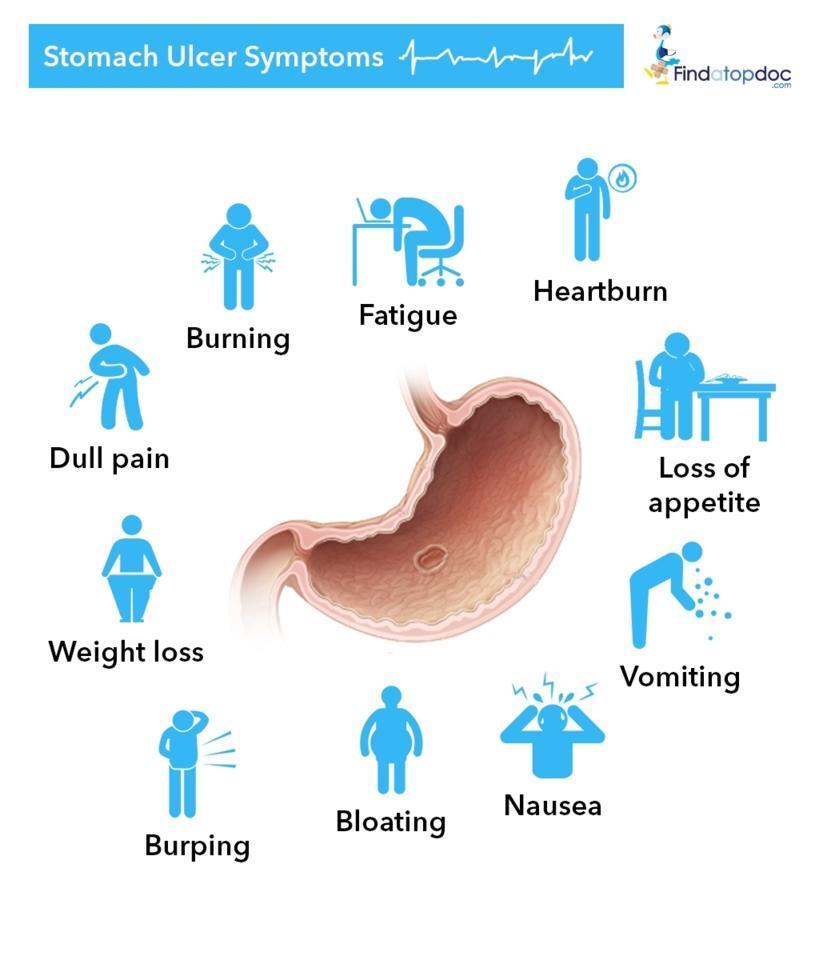Uncover the mystery behind stomach ulcers and discover the surprising factors that contribute to their development. Don’t miss out!
Table of Contents
- Introduction: The Grumbly Belly Mystery
- What on Earth are Stomach Ulcers?
- The Usual Suspects: What Causes Ulcers?
- The Bacteria Bandit: Helicobacter Pylori
- The Acid Attack
- Spotting a Sneaky Ulcer: Know the Symptoms
- Help on the Horizon: Treating Ulcers
- Eating Right to Fight Ulcers
- Preventing the Pests
- Conclusion: Belly Wrap-Up
- FAQs: What Else to Know About Tummy Aches?
Introduction: The Grumbly Belly Mystery
Do you ever get that grumbling feeling in your stomach that just won’t go away? Well, there might be a sneaky reason behind it that you never knew about – stomach ulcers! These pesky peptic ulcers can cause some serious tummy troubles, but don’t worry, we’re here to solve the mystery behind why they develop and what you can do about it.
Today, we’re going to dive into the world of stomach ulcers, exploring what they are, why they matter, and how you can spot the signs that your belly might be grumbling for a reason. So, join us on this investigative journey as we uncover the secrets of the Grumbly Belly Mystery!
What on Earth are Stomach Ulcers?
Stomach ulcers may sound like a strange term, but they’re really just a problem that can happen in your tummy. Think of them like big holes or sores that show up in your stomach. These sores are called peptic ulcers, and they can cause some grumbly belly troubles.
The Big Hole Problem
Imagine if your stomach had little holes or sores in it that made it hurt when you ate. That’s what a stomach ulcer can feel like. It’s like having a boo-boo inside your tummy.
Where in the Belly?
These ulcers can pop up in different places in your belly, like in the stomach itself or in the smaller intestine that comes after it. Wherever they decide to show up, they can cause some tummy upset.
The Usual Suspects: What Causes Ulcers?
When it comes to the mystery of stomach ulcers, there are a few usual suspects behind the scenes causing all the trouble. Let’s zoom in and take a closer look at what leads to these pesky sores in our bellies.

Image courtesy of www.findatopdoc.com via Google Images
The Bacteria Bandit: Helicobacter Pylori
Imagine tiny bacteria running amok in your stomach, causing chaos and irritation. Meet Helicobacter pylori, the sneaky culprit behind many stomach ulcers. These tiny microbes can weaken the stomach’s protective lining, making it easier for ulcers to form. It’s like a group of unwanted guests wreaking havoc at a party in your belly!
The Acid Attack
Now, picture your stomach as a fortress, protected by a strong barrier. But when too much acid shows up, it’s like an acid army attacking the fortress walls, weakening them and leaving them vulnerable to ulcers. Acid reflux, where stomach acid travels back up into the food pipe, can also contribute to these painful sores.
The Bacteria Bandit: Helicobacter Pylori
Have you ever heard of the bacteria bandit Helicobacter Pylori? Imagine a mischievous intruder sneaking into your stomach and causing trouble like a mysterious villain. Let’s uncover how this tiny bacterium plays a big role in creating stomach ulcers.
The Acid Attack
Imagine your stomach as a battleground where a fierce acid attack is constantly raging. This acid, which is supposed to help digest your food, can sometimes get out of control and start hurting the lining of your stomach. This is what can lead to the formation of stomach ulcers.

Image courtesy of txmoderngi.com via Google Images
When there’s too much acid in your stomach, it can eat away at the protective layer that coats the inside, causing painful sores known as ulcers to form. Just like a superhero battling a villain, the stomach’s lining tries to protect itself, but sometimes the acid is just too strong.
Spotting a Sneaky Ulcer: Know the Symptoms
In order to understand if you might have a stomach ulcer, it’s important to know what to look for. Ulcers can be sneaky and hide inside your belly without making a lot of noise. But with the right knowledge, you can learn to spot the signs. Let’s talk about some of the symptoms that might point to a stomach ulcer.
Tummy Trouble Signs
If you start feeling pain or discomfort in your stomach, that could be a sign of a stomach ulcer. It might feel like a burning sensation or a dull ache that just won’t go away. Sometimes the pain gets worse when you eat, and other times, it might bother you when your stomach is empty. Keep an eye out for any changes in your tummy that don’t seem to go away.
Other symptoms of stomach ulcers can include bloating, feeling full quickly, or even feeling sick to your stomach. You might also notice that you’re not as hungry as usual, or that you’re losing weight without trying. These symptoms can be your body’s way of telling you that something might be off inside your belly.
Remember, if you’re ever worried about how your tummy is feeling or if you notice any of these symptoms, it’s always a good idea to talk to a grown-up you trust, like a parent or a doctor. They can help figure out what’s going on and what steps to take next.
Help on the Horizon: Treating Ulcers
Now that we understand what stomach ulcers are and what causes them, let’s talk about how they can be treated. There is hope! Doctors and healthcare professionals have ways to help make those grumbly belly ulcers feel better.

Image courtesy of www.istockphoto.com via Google Images
Doctor’s Orders
When you’re feeling those tummy troubles that just won’t go away, it’s essential to visit your doctor. They have special tools to figure out if you have an ulcer and how severe it is. Sometimes, they might even look inside your belly using a tiny camera in a procedure called an endoscopy.
Once your doctor figures out that you have an ulcer, they’ll give you special medicines to take. These medicines can help calm down the acid in your stomach and heal the sore spots that are causing all that pain. It’s like having a superhero team working inside your belly to defeat those mean ulcers!
Eating Right to Fight Ulcers
When it comes to dealing with stomach ulcers and acid reflux, what you eat can play a big role in either helping or harming your stomach’s healing process. By making smart choices in your diet, you can give your belly the best chance to fight off those pesky ulcers.
| Cause | Description |
|---|---|
| Helicobacter pylori Bacteria | This common bacterium can infect the stomach lining and weaken the protective mucous layer, leading to inflammation and ulcers. |
| Nonsteroidal Anti-Inflammatory Drugs (NSAIDs) | Regular use of NSAIDs like aspirin and ibuprofen can erode the stomach lining, increasing the risk of developing ulcers. |
| Excessive Acid Production | High levels of stomach acid can irritate the stomach lining and contribute to the development of ulcers. |
| Unhealthy Lifestyle Choices | Smoking, excessive alcohol consumption, and stress can all weaken the stomach lining and make it more susceptible to ulcers. |
Diet Dos and Don’ts
It’s important to avoid foods and drinks that can trigger excess acid production or irritate your stomach lining. Spicy foods, citrus fruits, fried dishes, and carbonated beverages are best left off your plate if you’re dealing with ulcers.
Instead, opt for foods that are gentle on your stomach, like lean proteins, whole grains, fruits without citrus, and vegetables. These types of foods can help soothe your stomach and promote healing.
Hydration Help
Staying hydrated is key when you have ulcers. Water is your best friend, keeping your stomach lining moisturized and aiding in digestion. Try to limit your intake of caffeinated drinks like soda and coffee, as they can be harsh on your stomach.
Herbal teas and non-citrus fruit juices are great alternatives to hydrate and soothe your belly without causing unwanted irritation.
Preventing the Pests
Now that we understand how stomach ulcers can develop, let’s talk about how we can prevent those pesky ulcers from causing trouble in our bellies. By taking a few simple steps, we can keep those unwelcome guests like Helicobacter pylori at bay!

Image courtesy of www.findatopdoc.com via Google Images
Keeping Out Helicobacter Pylori
One of the main culprits behind stomach ulcers is the sneaky bacteria known as Helicobacter pylori. This tiny troublemaker can cause big problems in our stomachs. But fear not, there are ways to prevent it from setting up camp in our bellies.
Healthy Habits to the Rescue
To keep the pests away, it’s important to practice good hygiene. Washing your hands before eating and after using the bathroom can help prevent spreading bacteria like Helicobacter pylori. Also, avoid sharing utensils and cups with others to reduce the risk of infection.
Additionally, eating a balanced and healthy diet rich in fruits, vegetables, and whole grains can boost your immune system, making it easier for your body to fight off bacteria and keep your stomach healthy.
Drinking plenty of water and staying active by playing and exercising can also help keep your belly happy and strong, making it harder for those bacteria pests to sneak in and cause trouble.
By taking these simple steps and being mindful of your health and hygiene, you can help prevent stomach ulcers and keep your belly feeling grumble-free!
Conclusion: Belly Wrap-Up
Understanding stomach ulcers and their impact on the body is essential for taking care of our bellies. In this article, we’ve explored how stomach ulcers, also known as peptic ulcers, can cause discomfort and affect our overall well-being.
Recapping the Belly Troubles
We’ve learned that stomach ulcers are like little sores that can develop in the lining of our stomachs, creating a big hole problem that can lead to pain and other symptoms. These ulcers can occur in different parts of the digestive system, causing tummy trouble like stomach pain that’s hard to ignore.
Finding the Culprits Behind the Scenes
Two main culprits, helicobacter pylori bacteria and acid reflux, are often responsible for causing stomach ulcers. The Helicobacter pylori bacteria act as sneaky bacteria bandits, while acid reflux launches an acid attack on our stomach lining, paving the way for ulcers to form.
Seeking Help and Healing
If you suspect you might have a stomach ulcer, it’s important to recognize the symptoms and seek help from a healthcare professional. Doctors play a crucial role in diagnosing and treating ulcers, providing the necessary guidance to fight these pesky pests and start the healing process.
Nourishing our Bellies Right
Eating the right foods and making healthy choices can help our stomachs fight against ulcers and acid reflux. By adopting good eating habits and steering clear of trigger foods, we can support our bellies in the journey towards healing and preventing future ulcers.
In wrapping up our exploration of stomach ulcers, remember that understanding the causes, symptoms, and treatments for ulcers can empower us to take charge of our digestive health. With the right knowledge and support, managing stomach ulcers is possible. So, here’s to happy bellies and healthy habits!
FAQs: What Else to Know About Tummy Aches?
Can Kids Get Ulcers Too?
Yes, kids can get ulcers too! While stomach ulcers are more common in adults, they can still happen in children. Factors like stress, certain medications, and infections can contribute to ulcers in kids. So it’s important to listen to your body and tell a trusted adult if you’re experiencing tummy troubles.
Are Ulcers Super Serious?
Ulcers can be serious if left untreated. If you have tummy aches that won’t go away, it’s essential to see a doctor. They can help figure out what’s causing the discomfort and recommend the right treatment. By taking care of your belly health, you can feel better and avoid any major issues down the road.





